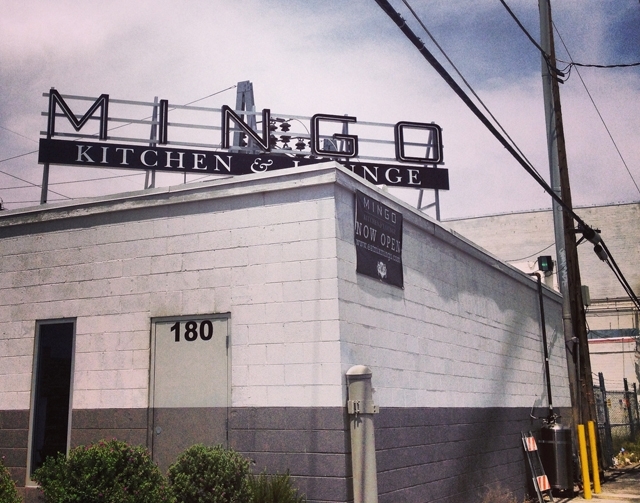Proposal would cut energy standards

There won’t be much energy loss through the newly insulated walls at Mingo Kitchen and Lounge in downtown Las Vegas.
And the gaping, wall-sized openings between the bar and the outdoor patio? That’s another story.
Yet even though owner George Harris is willing to accept warm summer breezes and brisk winter wind flowing between the dining room and the great outdoors, he still had to spend more than $30,000 insulating the block walls of the former garage on First Street.
“The fact they are making me do that and allowing me to have an indoor-outdoor bar is laughable,” Harris says of the heavily insulated walls.
“During the summer the heat is going to come in and during the winter the cool is going to come in. That’s my decision. I don’t need the city of Las Vegas making that decision.”
The city of Las Vegas makes business owners comply with an energy efficiency code when constructing or renovating buildings. In the case of buildings in the downtown redevelopment area, the cost is subsidized with public money.
Like many downtown businesses, Harris sought and received city grants to offset renovation costs. The money comes from a redevelopment agency that’s making less revenue than it generates and that plans to spend $1.4 million from reserves in the upcoming year.
Harris received more than $30,000 to offset sewer hookup fees and other costs such as facade improvement.
Councilman Bob Beers, who is a business partner with Harris in another restaurant, wants to change the code to reduce the costs altogether. A proposed ordinance would exempt buildings constructed before 2009 from having to comply with the 2009 energy standards, which he says would be good for business and save public money. It wouldn’t help Harris’ business because he’s already paid for the work, but it could save money for future business owners.
The change wouldn’t apply to new construction and would mostly impact downtown, where new businesses are often seeking to renovate old buildings that have little to no insulation, older windows and may not even have heat or air conditioning. The changes wouldn’t affect codes for electrical, plumbing, or other safety-related construction and remodeling codes.
The ordinance was approved 2-1 in a recommending committee vote and could go to the full council next month. Beers, Mayor Pro Tem Stavros Anthony and Councilman Bob Coffin support it. Councilman Ricki Barlow opposed it on recommending committee, while council members Steve Ross and Lois Tarkanian and Mayor Carolyn Goodman have yet to weigh in. At least one would need to join proponents to get the necessary four votes for passage.
Beers has run into stiff resistance from architects, energy-efficiency proponents and some city officials.
In a recent newsletter for the Southern Nevada Chapter of the International Code Council, Don White, senior plans examiner for the city, wrote that Beers had misconceptions about the code and “not too much of what we related to him (about the benefits) seemed to matter.”
White also referred to Beers as a “tea party libertarian” who is running for re-election. He urged members of the chapter to attend city meetings to oppose the change.
Beers says the issue is heated because the issue taps into greater concerns about everything from global climate change to geopolitical instability, which are often attributed to excessive use of fossil fuels.
“It is a very difficult topic to discuss rationally because it is emotional, it is about saving the world,” Beers said, adding electricity consumption is fueled largely by natural gas, not foreign oil.
The Las Vegas code is a variation on the 2009 International Energy Conservation Code, which is applied throughout the United States. That includes Southern Nevada cities except Mesquite, which voted to repeal its adoption of the standard.
Critics of the proposed Las Vegas ordinance accuse backers of being short-sighted.
They say not only does the code save energy, it saves money. Buildings improved under the code increase in value and become more desirable for future businesses, they argue.
Beers’ proposal, they said, would be a step backward for Las Vegas’ efforts to establish itself as a modern, efficient community.
“There are a number of reasons why this, even as amended, is a bad idea,” said Randy Lavigne, executive director of the Nevada chapter of the American Institute of Architects. “The true expense of the building is in the energy cost over the life of the building.”
Jennifer Turchin, president of the Nevada chapter of U.S. Green Building Council, said money saved on energy is returned to the local economy in the form of other spending.
She also said the city would be falling behind other cities by paring back the code: “We’d be the only city in the country going backward in our energy codes.”
Contact reporter Benjamin Spillman at
bspillman@reviewjournal.com or 702-383-0285 .